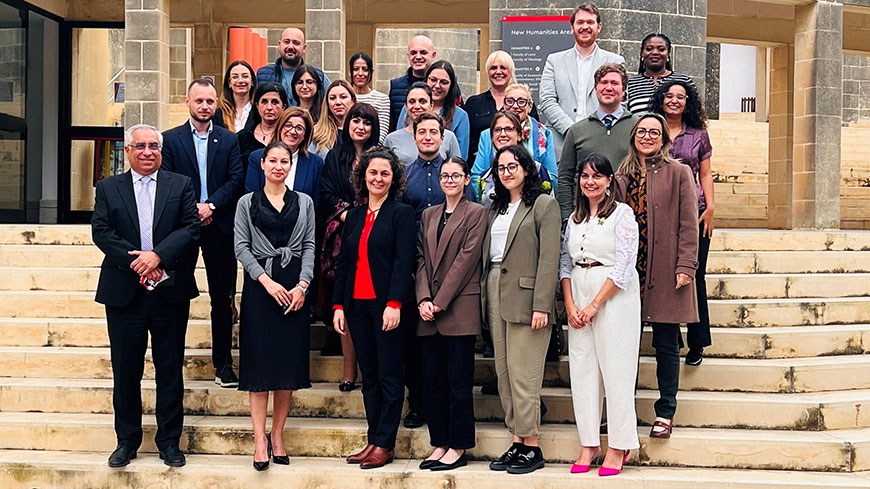On 27 November 2024, a roundtable “Ensuring Sustainable Survivors’ Engagement” took place at the University of Malta, Msida, bringing together national anti-trafficking authorities, civil society representatives and international organisations. The event was co-organised by the Council of Europe, the European Commission (DG REFORM), the Human Rights Directorate (Office of the Prime Minister) and the University of Malta. It aimed at providing national stakeholders with practical tools and strategies to engage survivors in anti-trafficking initiatives, while also promoting the creation of advisory bodies that ensure sustainability of survivors’ involvement.
In her opening address, Noellie Brockdorff, Dean of the Faculty of Media and Knowledge Sciences of the University of Malra, reaffirmed Malta’s commitment to combating trafficking in human beings, and emphasised the critical role of survivor engagement in shaping meaningful reforms. Petya Nestorova, Executive Secretary of the Council of Europe Convention on Action against Trafficking in Human Beings, highlighted the principle of participation as a cornerstone of the human rights-based approach to action against human trafficking. She stressed the importance of supporting the creation of advisory bodies composed of individuals with lived experience and involving them in the development of anti-trafficking policies.
The European Commission underlined its commitment to combating human trafficking as part of the EU Strategy on Combatting Trafficking in Human Beings (2021-2025) which sets a comprehensive response to the crime, focusing on prevention, protection and empowerment of victims, and bringing traffickers to justice. The Commission is pushing for EU-wide anti-trafficking strategies and supports Member States like Malta in their efforts to develop comprehensive, survivor-centred national strategies.
The workshop featured insightful contributions from members of the Lived Experience Advisory Panel (LEAP) of the United Kingdom’s Human Trafficking Foundation and the OSCE-ODIHR International Survivors of Trafficking Advisory Council (ISTAC). LEAP representatives addressed the spectrum of survivor engagement, emphasising different levels of involvement, from consultation to full partnership, and the transformative impact of integrating lived experiences into anti-trafficking efforts. Members of ISTAC presented the leading principles for engaging survivors, including trauma-informed practices, confidentiality and empowerment, and offered practical advice on setting up sustainable survivor consultation panels.
This workshop is part of the European Union – Council of Europe joint Project on “Supporting Malta in the design and implementation of a new anti-trafficking strategy (2022-2024)”.
